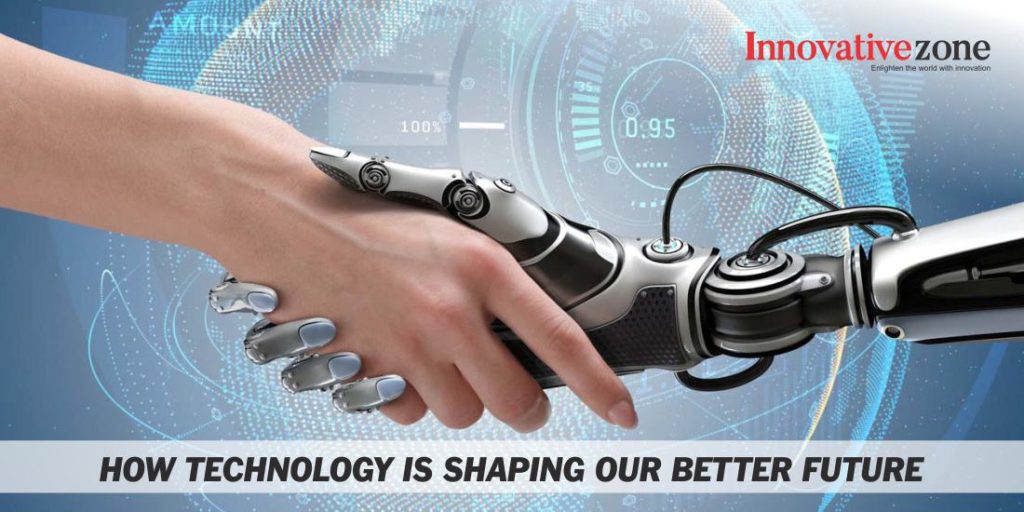How Technology is Shaping Our Better Future.
By- Anant Kumar
AI (Artificial Intelligence) – Yesteryear’s wildest science fiction is now an essential part of our lives. But it wasn’t like that before 2010. Trying to get an AI-enabled unmanned flight tracking company like SkyGrid off the ground has been unattainable.
But now everything has changed, the way we are connecting to the world and follow our regular activities are entirely different from what it was a decade ago. No doubt there will be an even better degree of change in the next 10 years ahead. Today, we are riding exponential trends and are already in the middle of major changes.
In this article, we will be discussing how technology is shaping our better future. Changes like from our homes to cities and from the workplace to the consumer experience.
Smart Living.
We are in an era – where technology capabilities at our fingertips, and that’s what makes us smarter. With the adoption of newer technologies like the internet of things and artificial intelligence, home automation becomes even more prolific. Of course, along with AI and IOT, Smartphone device has become more powerful. Nowadays, the inhabitant is controlling their home remotely via the device. Smart Technology like digital shower, Smart toilet, Smart Oven, wireless charging table, smart bulbs, and many domestic Smart-home appliances have been used by many of us on daily basis. These technologies aren’t just saving our time but also energy as well.
Smart Cities.
As population and urbanization are increasing, many governments around the world are racing to infuse technology into just about every aspect of a city’s operations. Every single part includes public transportation, IT connectivity, water & power supply, sanitation, solid waste management, and efficient urban mobility e-governances citizen part. It does this using every buzzword imaginable, from big data to the internet of things. To know how it works, let’s take the example of Singapore smart city where the government has deployed systems that can tell whether anyone is smoking in a prohibited area or littering from high-rise housing.
In 2014, the Singapore government introduced its own Smart program nation, they have added more cameras on every single street so that they can monitor crowd density, cleanliness of public spaces very effectively, and even the exact moment of every locally registered vehicle. Many municipal governments are leveraging cellular and low-power wide-area wireless technologies to enhance the infrastructure and their qualities, efficacy, and quality of life for people.
Future of Work
The year 2020 has been the most depressing and troublemaking year of our generation. While it has been an incredibly challenging time for the majority of ones. Ever since then, we have learned how to work flexibly and maintain our productivity. Many ventures are looking at ways to continue the changes wrought by 2020 and turn them into a more positive way of working. Amid the post-pandemic, we have seen that video apps like Zoom, Google meet, and Skype has become ubiquitous.
Zoom alone has been seen around 300 million meetings daily throughout April. Now Tech companies are following a novel approach to try and keep people engaged while working remotely. For instance, Nvidia has developed AI to prioritized human expression at expense of the background of video calls. A project like Oculus Rifit and Facebook’s infinite office utilse VR to create an immersive Virtual office space by Visualizing things like multiple monitor setup.
The way we used to work before has drastically changed over the past few years. Advance techs, from smartphones and light laptops to AI and automation, have transformed and revolutionized business practices.
New Shopping Experience.
After demonization, cashless demand began. Although it was seen as optional, now it has become necessary. Both customers and owners are preferred cashless transactions these days. Electrical bills, flight tickets, gas bills, water bills, and many others are being paid online. Owning a cashless society isn’t ease one’s life but also helps authenticated and formalizes transactions. E-commerce companies like Amazon, Flipkart, Alibaba, and many have changed the way of shopping. The e-commerce platform is providing a wide variety of choices to its customers. Since products are replaceable, customers have profound feelings about online shopping. As per IBEF, The Indian E-commerce market is expected to grow to $ 200 billion by 2026.
Also Read:- Sundar Pichai Success Story


